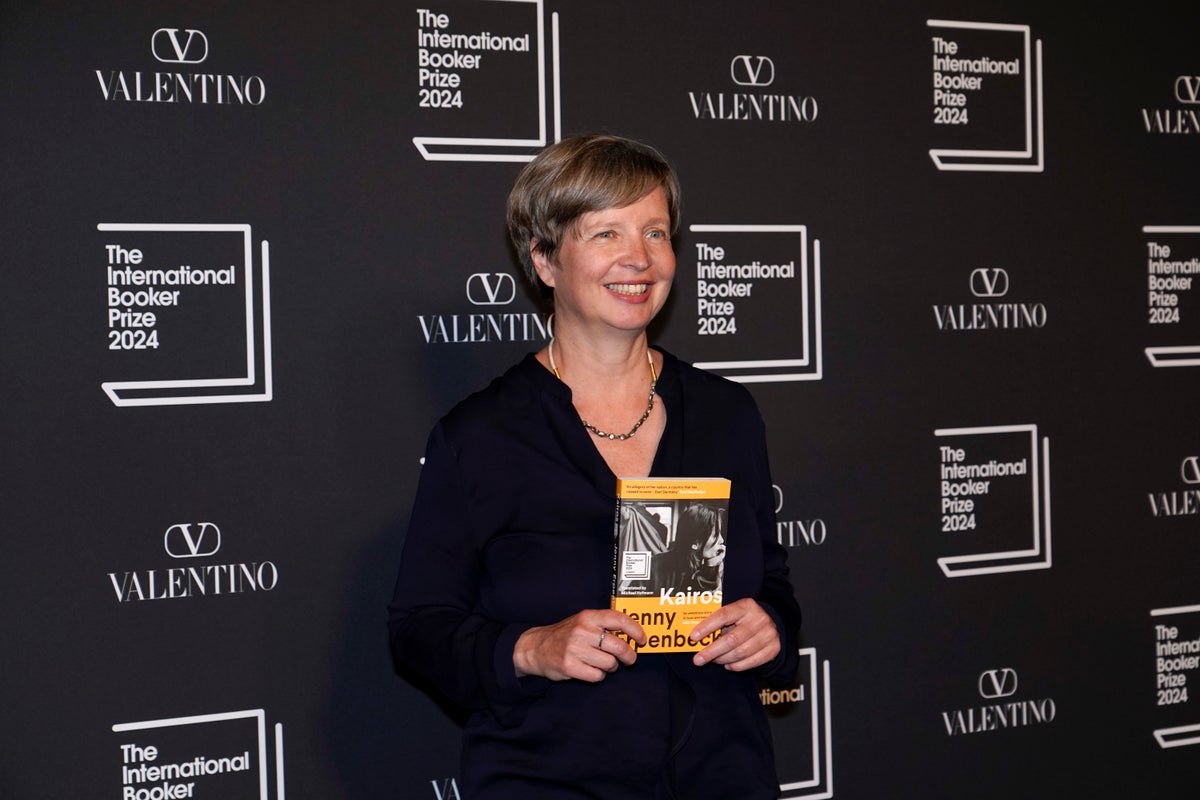
German author Jenny Erpenbeck and translator Michael Hofmann won the International Booker Prize for fiction on Tuesday for “Kairos,” the story of a tangled love affair during the final years of East Germany’s existence.
The novel beat five other finalists, chosen from 149 submitted novels, for the prize, which recognizes fiction from around the world that has been translated into English and published in the U.K. or Ireland. The 50,000 pounds ($64,000) in prize money is divided between author and translator.
Canadian broadcaster Eleanor Wachtel, who chaired the five-member judging panel, said Erpenbeck’s novel about the relationship between a student and an older writer is “a richly textured evocation of a tormented love affair, the entanglement of personal and national transformations.”
It’s set in the dying days of the German Democratic Republic, leading up to the fall of the Berlin Wall. Erpenbeck, 57, was born and raised in East Berlin, which was part of East Germany until the country disappeared with German reunification in 1990.
“Like the GDR, (the book) starts with optimism and trust, then unravels so badly,” Wachtel said.
She said Hofmann’s translation captures the “eloquence and eccentricities” of Erpenbeck’s prose.
The International Booker Prize is awarded every year. It is run alongside the Booker Prize for English-language fiction, which will be handed out in the fall.
Last year’s winner was another novel about communism and its legacy in Europe, “Time Shelter” by Bulgarian writer Georgi Gospodinov and translated by Angela Rodel.
The prize was set up to boost the profile of fiction in other languages — which accounts for only a small share of books published in Britain — and to salute the underappreciated work of literary translators.
Hoffman is the first male translator to win the International Booker Prize since it launched in its current form in 2016.







